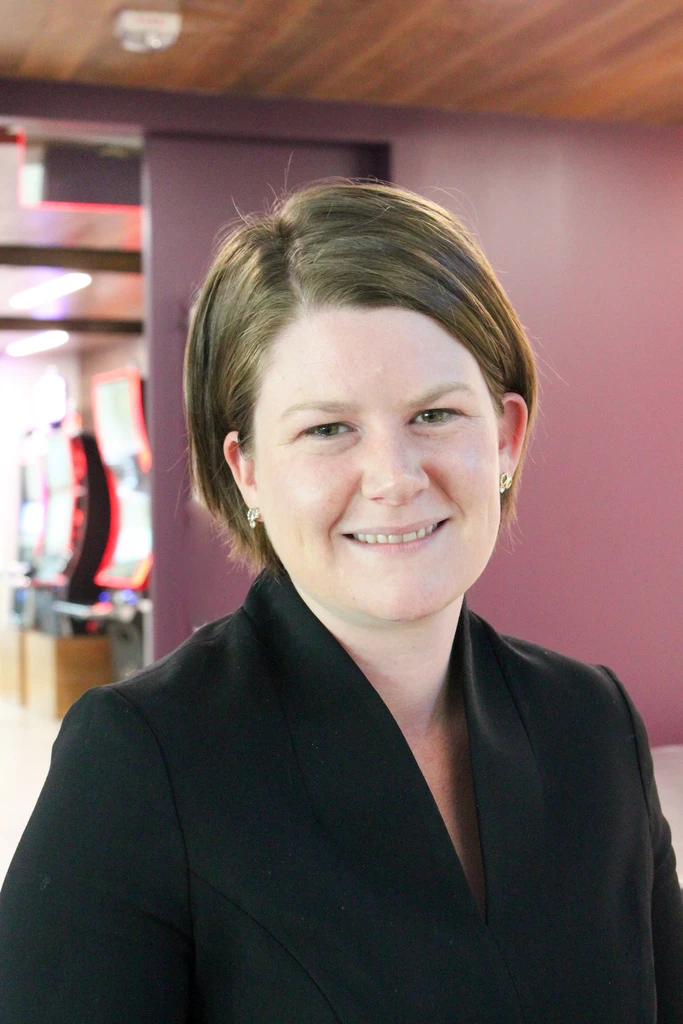Four tiers of player protection: Keeping global gaming responsible with OpenBet

Gambling operators paid out an astonishing $250m in penalties last year, as compliance failures relating to responsible gaming and anti-money laundering proved costly.
A large proportion of that total came from Great Britain, with the Gambling Commission taking £64.3m from companies found to be in breach of their licence conditions. The Gambling Commission has regulated the domestic sector for almost 20 years, and compliance and channelisation rates are among the highest in the world.
Anti-money laundering failings are not the sole reserve of new or inexperienced operators. In March 2023, William Hill Group was told to pay a record £19.2m for social responsibility and anti-money laundering failures, a sum that eclipsed the previous highest penalty of £17m handed to FTSE 100 company Entain the previous year.
With these startling numbers, it’s no surprise there’s a brighter spotlight on driving more responsible gambling measures. Though compliance failings hit companies’ bottom lines, the reputational damage that this causes is detrimental to building a sustainable and long-lasting industry.
“Right now, there are many efforts to put guard rails and safety mechanisms in place, but unfortunately with not much backing in evidence, data, or research,” Feil says. “We’re working to be part of those conversations and changes to ensure that responsible gaming policies that are developed will successfully protect players.”
Key challenges for operators
These failings come from operations across the globe and Feil identifies three key challenges for companies operating in increasingly regulated and complex markets.
“The first is balancing commercial interests with consumer protection. Mitigating potential harms posed by gambling addiction has long been a balancing act across the gambling industry, however research suggests that a responsible player is a loyal player.
“By implementing measures such as self-exclusion programmes, setting deposit limits, or offering real-time feedback, operators enable players to take control and gamble responsibly.”
The second challenge is identifying and helping problem gamblers. However, recognising these individuals’ potentially harmful behaviours or early warning signs can sometimes prove difficult, and the analysis of player activity can be impacted by a variety of different factors, as Feil explains.
“For example, seasonality, new players and multi-operator players, for which data analysis and deciphering whether players are at harm, is difficult,” she says. “By using machine learning models, complex algorithms and scientifically backed research, operators – and players – are beginning to see the benefit of enhanced preventative measures when intervening to promote safer gambling.”
Challenge number three concerns adapting to changing regulations and staying compliant with player protection requirements. This is difficult for operators – particularly cross-jurisdictional operators – who are required to comply with multiple standards, but Feil has a solution:
“This is where an effective and efficient back-office compliance team comes into play to ensure the alignment with regulatory standards, as well as adopting regulatory compliant support systems, such as Neccton.”
Putting player protection first
With responsible gambling at the heart of OpenBet’s motivations, it was a natural next move for the business to acquire Neccton. Specialising in safer gambling, anti-money laundering and fraud detection, Neccton services over 60 billion transactions, analyses millions of real-time activity streams and can process tens of thousands of events per second.
Through Neccton, OpenBet gains learnings from data to manage risk and help prevent problem gaming for players worldwide. By utilising the numbers effectively, it is then able to gain actionable insights and develop strategies to help customers enhance their player protection capabilities. New client data continuously enhances its algorithm, improving its ability to protect players. With one single integration, operators can also receive a highly customisable, real-time AI-based analytical application.
Feil is enthusiastic about the acquisition – “Neccton is the industry leader at implementing player risk ratings and models, backed by dozens of scientific papers specifically focused on problematic gambling,” she says. “Both believe in the approach of building evidence-based models, providing real-life benefits to players.”
Since the acquisition, OpenBet now has four tiers of player protection, with advanced technology that enhances responsible gaming, anti-money laundering, fraud detection and cyberattack defence capabilities.
OpenBet’s enhanced player protection offering
“Following the Neccton acquisition, OpenBet believes it not only has the platform tools to allow operators to perform actions, but it has the academically sound and evidence-based player risk rating models and software to decide whether or not certain actions should be taken.”
OpenBet’s player protection capabilities extend to integrated responsible gaming features within its Player Account Management (PAM). OpenBet’s PAM enables players to manage their responsible gaming processes in the back-office by setting self-exclusion parameters, deposit limits or player communication.
Staying responsible in a variety of jurisdictions
“As regulators – and the broader industry – strive for solutions around responsible gaming, we will continue to be pushing the envelope on not just what is possible but what should be the standards for everyone. It is a lot about education and researching findings to help shape regulation the right way.”
Keeping up with all the various laws and regulations is a constant challenge for igaming companies, but OpenBet monitors regulatory changes and legislative updates around the world.
Fiel explains, “While we use a variety of outside services, we also rely on our networks and partners to stay informed – and keep them informed as well. It is very often a collaborative effort with our partners not just to understand what changes might be coming, but to shape and drive those changes to improve the industry’s sustainability.”
Its acquisition of Neccton could prove particularly beneficial for partners in North America who need to navigate its patchwork quilt of regulatory requirements.
Michael Auer, managing director at Neccton, describes: “Before OpenBet acquired Neccton, there was an overlap in our audience across Europe, but now there is a greater focus on the US, which is an emerging market. We hope to be able to shape that market to some degree, to really educate policy makers and regulators to take the right steps, instead of trying to fix things in hindsight.
“We work with our partners to not just understand what changes might be coming, but to shape and drive those changes to improve the industry’s sustainability. This is especially key around responsible gambling as success here will require entire industry support.”
The Neccton division regularly provides demonstrations of its technology to help regulators understand what is possible with responsible gaming-focused technology grounded in academic research. This supports OpenBet’s core value that “Responsible gaming is and must continue to be an industry-wide priority. All stakeholders – operators, suppliers, regulators, trade groups and media – need to understand and promote player protection and responsible gaming.”
Safer gambling: Is AI the future?
Following the acquisition of Neccton, OpenBet has identified the powerful role it can play in helping to shape the future of the gambling industry with cutting-edge technology that can lower risk.
One element of this is the use of artificial intelligence (AI) and how it can be used to encourage safer gambling. AI proactively identifies issues, scanning user data to catch early signs of problematic gaming behaviour, and can then tailor interventions based on individual player profiles.
Auer believes this could be a game-changer: “Imagine receiving guidance and limits that are personalised just for you, courtesy of AI algorithms.”
The biggest advantage is that AI doesn’t operate in a static manner; it dynamically assesses risks in real time, adjusting protective measures as player behaviour evolves.
“It’s not just about spotting problems,” Auer explains. “AI plays a crucial role in preventing fraud and ensuring compliance with player protection regulations. Picture a system that not only identifies irregularities for platform integrity but also automates checks for adherence to gaming rules.”
Auer also believes that AI can be used to predict future trends in gaming behaviour, allowing regulators to make informed, proactive adjustments.
“Here’s the beauty of it all – AI is a continuous learner. As it gathers insights and data, it contributes to an ongoing process of refining and improving safer gaming measures.
“Of course, this journey is not without its ethical considerations. Ensuring transparency and safeguarding user privacy are at the forefront of building trust in a responsible and secure gaming environment. You also always need a degree of human input, especially when communicating with players and helping them understand their behaviour.”
OpenBet: Being a trusted partner in the industry
While there is a cost to developing the technology that protects players and businesses, history shows us there are mammoth repercussions for failing to act accordingly. With its four tiers of player protection, OpenBet has proven itself to be a leader in providing responsible gambling platforms that solve some of the industry’s biggest pain points. But the success of these responsible gambling measures and technologies across the igaming world will require, as Feil puts it, “entire industry support”.

Dr. Michael Auer published more than fourty peer-reviewed articles in the area of online gambling about subjects like limit setting, personalized feedback, self-exclusion and pop-up messages. This academic background and his commercial experience of more than fifteen years in the gambling industry lead to the development of a player tracking tool called “mentor” which is currently used by dozens of online gambling operators across the world.

Jessica Feil serves as Vice President, Regulatory Affairs & Compliance at OpenBet, where she oversees licensing, corporate compliance, and product compliance. Before joining OpenBet, Jess held the position of Vice President, Government Relations & Gaming Policy Counsel at the American Gaming Association. She started her gaming law career at a boutique law firm in Washington, DC, where she advised gaming clients from all over the world on a variety of areas including regulation, compliance, and licensing.
